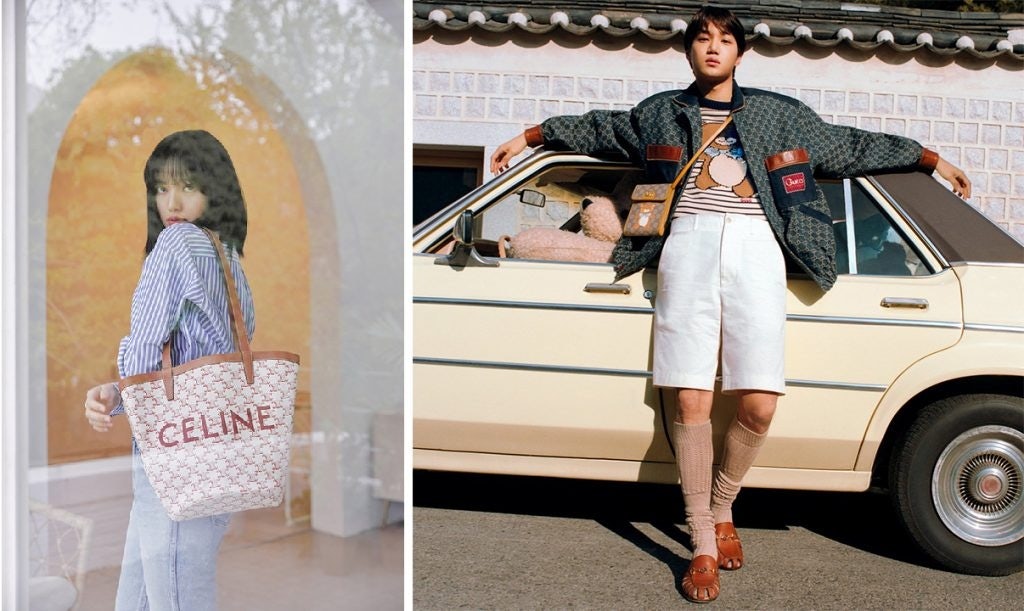Key Takeaways:#
In the past years, global luxury brands have chased associations with K-Pop celebrities and Chinese idols.
Since young Chinese women traditionally represent luxury's target consumer, brands must do more to mend their relationships with them.
Instead of investing in KOL marketing and remaining silent on social issues, brands should support cause marketing.
Two high-profile celebrities, Chinese pop star Kris Wu and actor Zhang Zhehan, recently displayed controversial behavior, shocking Asia and the luxury brands partnering with them. But they were hardly the first powerful Asian men whose behavior sparked a heated debate on toxic masculinity, celebrity behavior, and the #MeToo movement in Asia.
In 2019, rape accusations against singer-songwriter Jung Joon-young and musician Choi Jong-hoon rocked South Korea and the K-pop scene. And last week, one of K-Pop’s biggest stars, Seungri, was sentenced to three years in prison and fined $989,000 (1.15 billion Won) after a military court found him guilty of crimes that included providing prostitutes to foreign business executives, according to the Associated Press and a National Public Radio report.
In past years, global luxury brands have chased associations with K-Pop celebrities and Chinese idols. Lisa Manoban of Blackpink was named Celine’s first official ambassador, while Blackpink's Rosé became Saint Laurent’s ambassador. G-Dragon has been Chanel’s brand ambassador since 2017, and Exo’s Kai was named Gucci’s Global Ambassador.

There is also Kris Wu — the megastar whose name became synonymous with ultra-luxury. Wu's associations with Bulgari, Porsche, and Louis Vuitton were celebrated, and global luxury brands were delighted to enlist his services for PR events and product collaborations. But then came the shocking allegations of rape against him, and brands began severing their partnership with Wu. But these partnership terminations do not necessarily imply that these brands are off the hook.
And now, many female consumers might associate these brands with the culture of toxic masculinity and male predatory behavior. That is especially true in China, a country famous for its conservative views on women, where the #MeToo movement still hasn't taken off.
Since young Chinese women traditionally represent luxury's target consumer, brands must do more to mend their relationships with them. A 2017 survey conducted by the Guangzhou Gender and Sexuality Education Center and Beijing Impact law firm on college-age women showed almost 75 percent of them experienced some form of sexual harassment in their lifetime, with more than 40 percent of incidents occurring in public space on college campuses.
Luxury brands could take this opportunity and learn from it. Instead of chasing the next Kris Wu or spending their marketing budget on KOL culture, they could take a stand on a social issue of great importance to female consumers. By doing so, they can create real change and build emotional bridges between fans and the brand.
A 2018 Statista survey on online luxury consumption in China shows female buyers made 71 percent of those purchases. And the Swiss private banking group Julius Baer described the new powerful luxury consumer as “young, female, increasingly fashion-conscious, free with spending, and active on social media.”

The same trend was revealed in a report by Hurun Research, showing that China has produced the highest number of self-made women entrepreneurs worldwide. China had 85 female billionaires as of January 2021 — nearly two-thirds of all global female billionaires, according to the South China Morning Post.
The young Chinese woman is now widely celebrated as the leading force behind global luxury spending. And yet, in a global #MeToo era, brands don’t know how to respond to the sexual harassment scandals that have plagued the celebrity culture. Despite these troubling circumstances, this latest round of celebrity scandals should be a wake-up call for luxury brands. Instead of investing in KOL marketing and remaining silent on social issues, brands should support cause marketing. Putting support behind social campaigns will generate brand awareness, establish trust and loyalty, and inspire conscious consumers.
